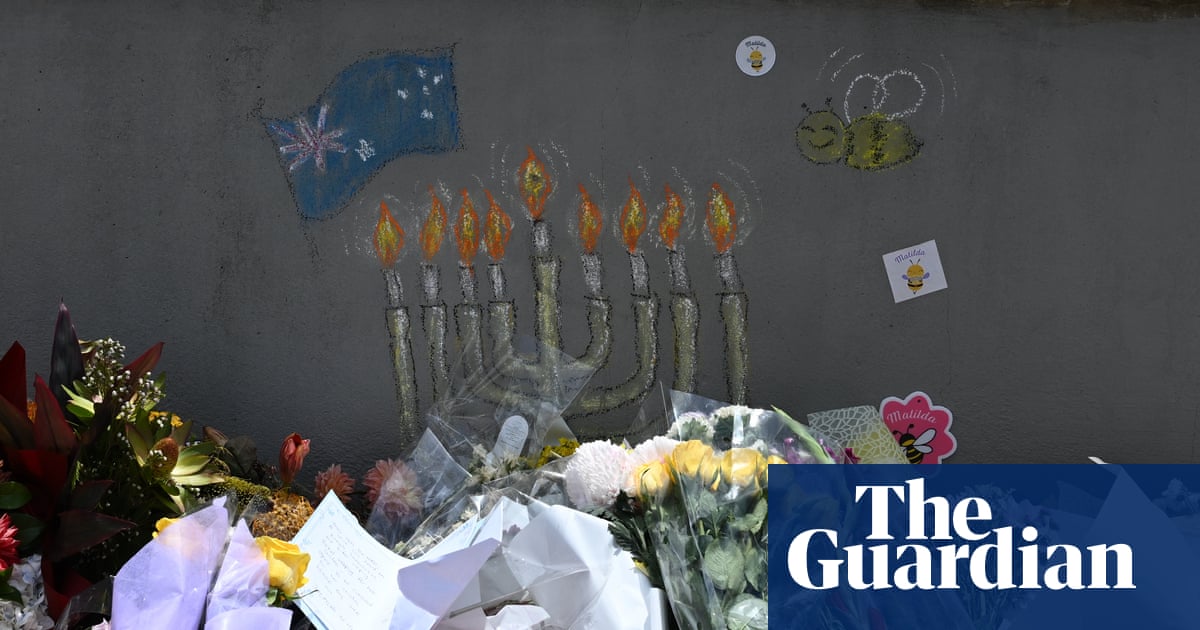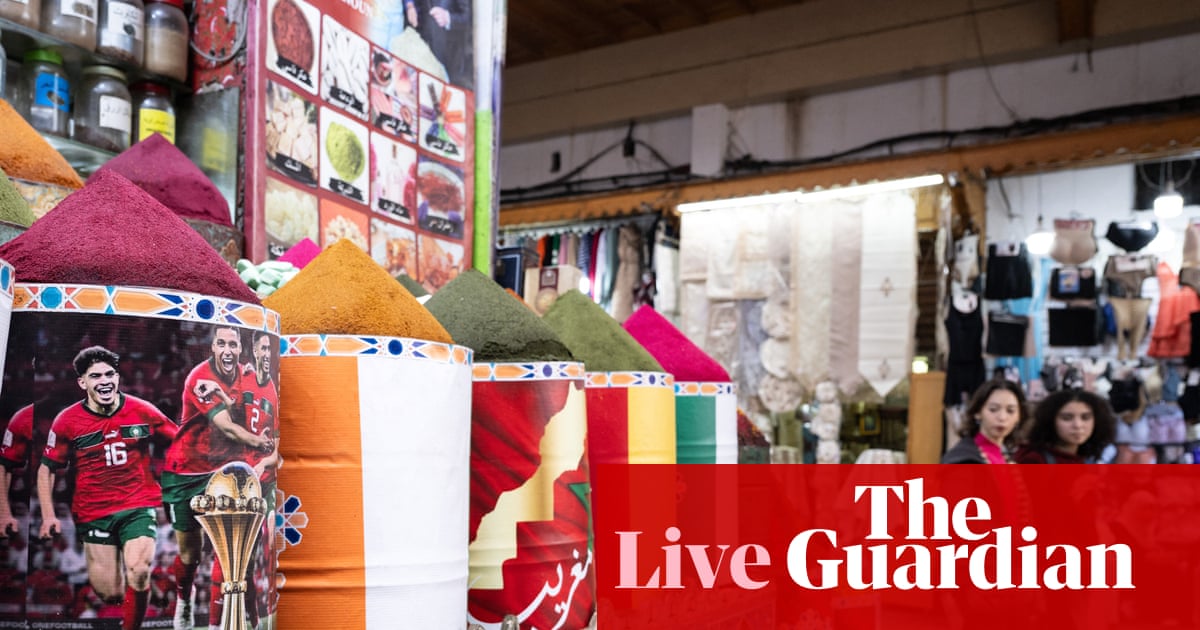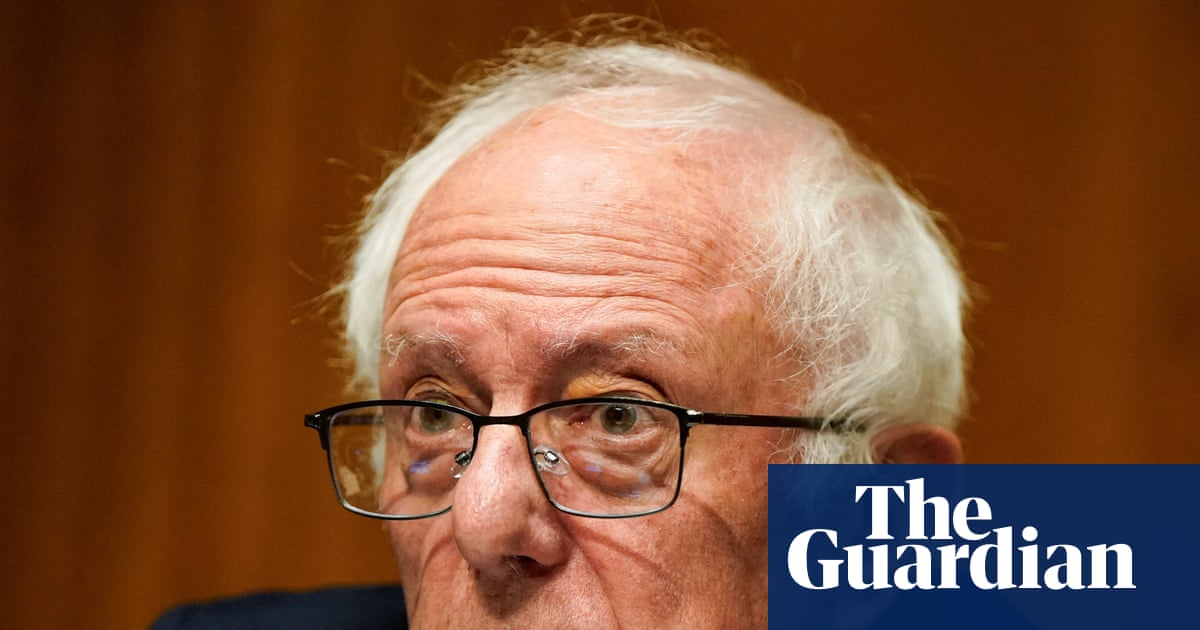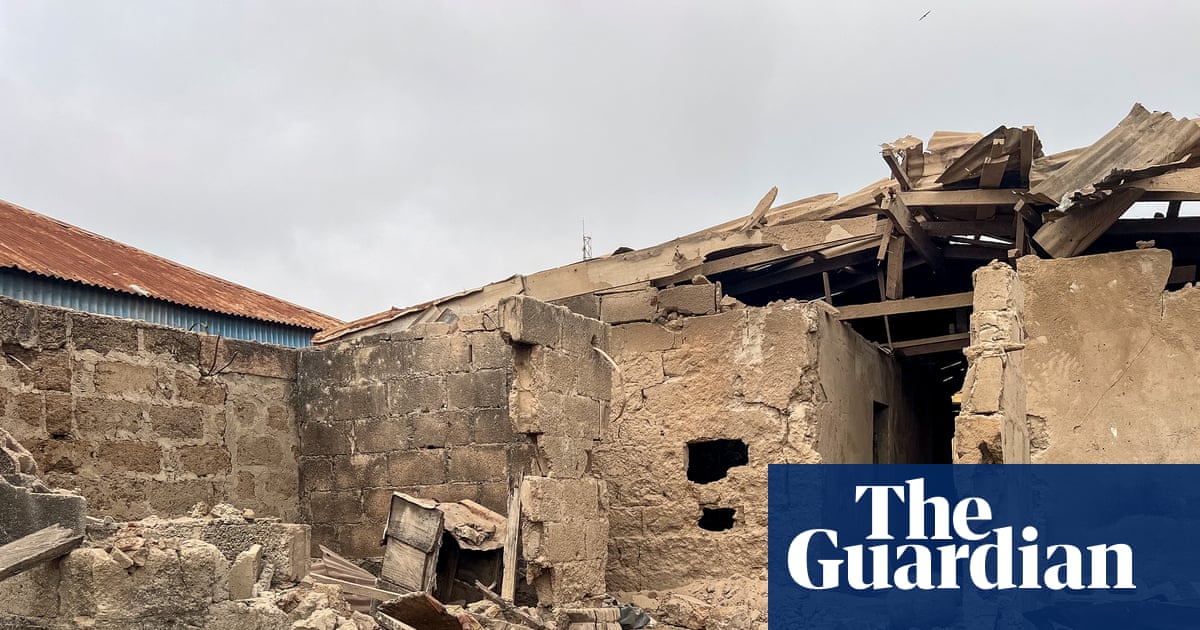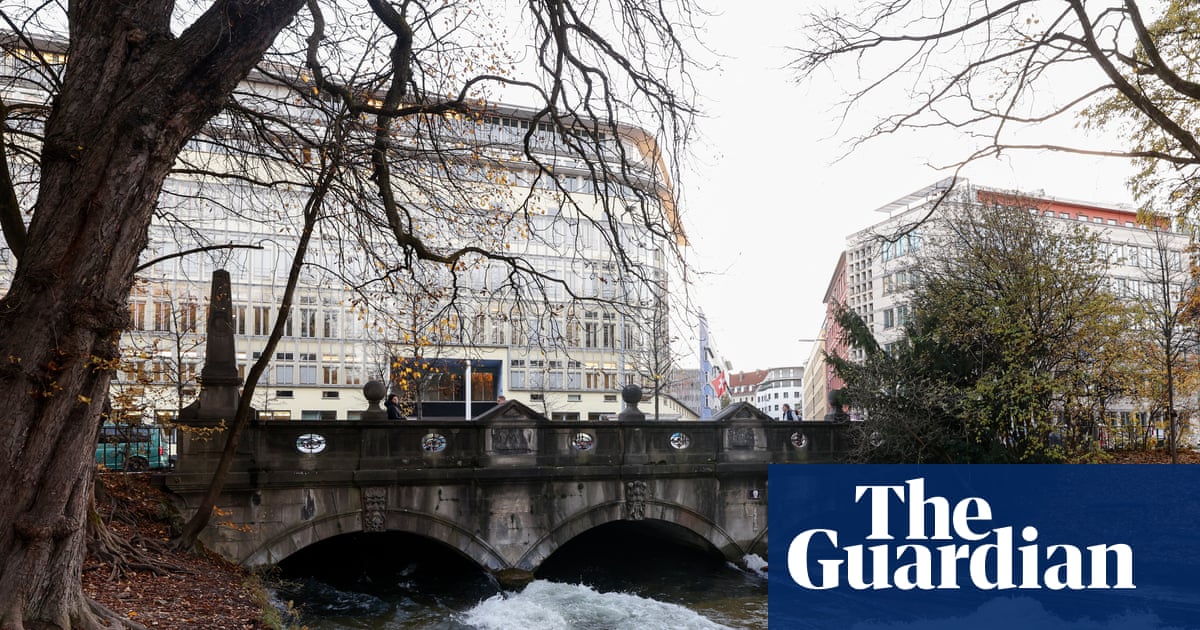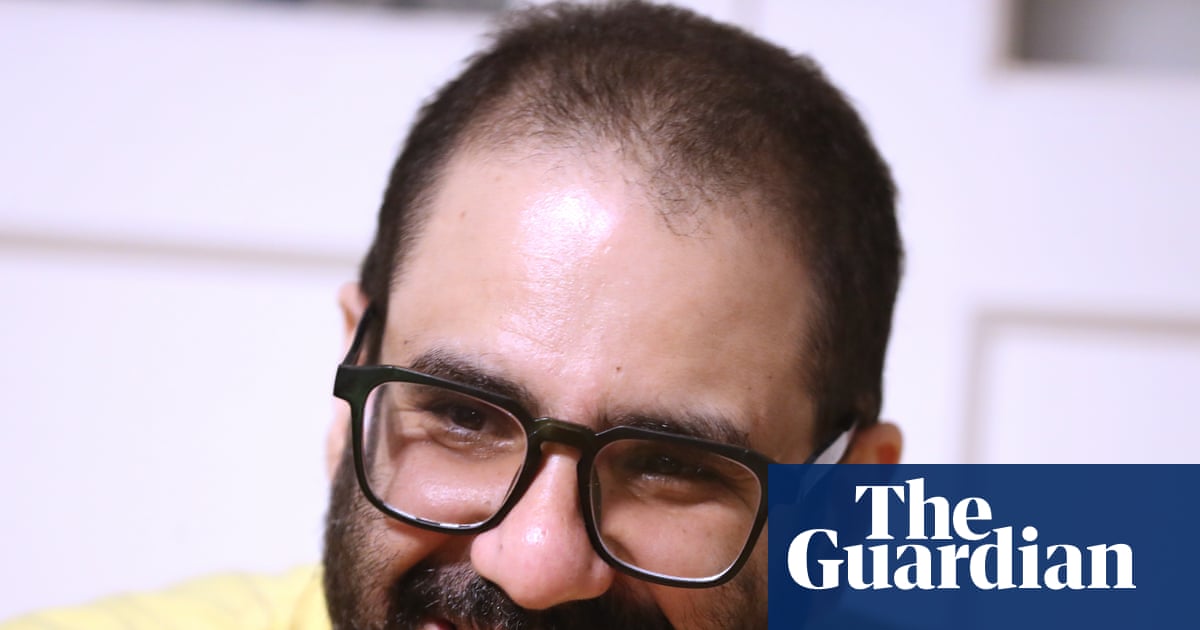Hundreds of people from 44 countries are sailing to Gaza in the Global Sumud Flotilla this week. I am among them. We aim to non-violently break Israel’s illegal siege by delivering much-needed supplies. I joined the mission because, as an Irish person, I have watched my government meet what our taoiseach acknowledges to be a genocide with little more than the occasional round of three Hail Marys.
In fact, that framing is overly generous. The Irish government is not just passively useless in the face of genocide; it aids and abets the perpetrators. US military planes potentially carrying arms to Israel routinely pass through Ireland’s Shannon airport without inspection. A 2018 Occupied Territories bill originally intended to ban all trade with illegal Israeli settlements is now in its seventh year of legislative limbo, with endless dithering as to whether it should include services. By Israel’s choice, Ireland’s central bank is, since Brexit, the sole regulating authority in the EU that approves for trading Israel’s explicitly marketed war bondsfor sale across the bloc. Selling bonds allows Israel to raise cash internationally that it is openly using to fund its campaign in Gaza. In June, the Irish government defeated a motion to end the central bank’s facilitation of the sale of these bonds. There is a dystopian irony in actively choosing to remain Israel’s “home” country for bonds approval – in the financial terminology – while claiming to condemn its forced dispossessions.
Ireland’s solidarity with Palestine is easily romanticised by those abroad and by the Irish ourselves. We take a strange exceptionalist pride in having recognised Palestinian statehood in May 2024, nearly four decades after the first wave of 89 countries did in 1988-89. We were the 142nd country to do so.
But the Palestinian activists we claim to stand with are intensely aware of our government’s hypocrisy. At any big protest in Ireland, you’ll hear speakers who’ve recently fled Gaza condemning their complicity. Nor does the state’s purely rhetorical support fool those in Northern Ireland; pro-Palestine campaigners there are as critical of Dublin as of the UK government. From many Belfasters’ perspectives, it makes perfect sense that the 26-county republic would collaborate with colonial occupation while paying lip service to hoping it will end.
Within the EU, Ireland faces little scrutiny for its complicity in Israel’s war crimes compared with the amount understandably directed at Germany. I was living in Berlin when Israel began its bombardment of Gaza in retaliation for the crimes of Hamas on 7 October, which themselves occurred after decades of illegal Israeli occupation and a siege on Gaza dating from 2007.
I was detained twice by German police simply for being at pro-Palestine demonstrations but I witnessed far worse repression against other protesters, with Muslims especially targeted for violence. German policing of Palestine protests has become even heavier since I returned to Ireland in January. Last week, a 25-year-old Dubliner, Kitty O’Brien, was twice violently assaulted by police at a Gaza demonstration in Berlin. This violence led to spontaneous protests in Ireland, and expressions of deep concern from the taoiseach and Ireland’s ambassador to Germany.
I have found Ireland a less hostile environment to protest in. But the necessity to protest at all comes from my government’s failure to respond on a policy level. There is the illusion of a debate among European countries: we’ve got Germany backing Israel, and countries such as Ireland and Spain (along with Norway) backing Palestine, so let’s see how they resolve it in the grand old marketplace of ideas. This fiction flatters all involved. The countries relatively critical of Israel evade scrutiny for still not having domestically sanctioned it; they’re pushing for this to happen at an EU level, after all. And Germany benefits from a conversation held on the premise that all EU countries maintain economic and diplomatic ties with Israel. Its critics’ authority in condemning the genocide is diluted by their failure to treat it in practice as one.
Domestically, Irish campaigning on Palestine is now focused on a 2 September deadline to renew the central bank’s approval of Israeli bonds. The bank already renewed their approval last September, nearly a year into the genocide. The Ireland Palestine Solidarity Campaign (IPSC) group holds weekly protests on the issue, usually outside the central bank. Another coalition of demonstrators has committed to “civil disobedience” every week for the foreseeable future, with its first actions consisting of stopping traffic in central Dublin. Trade unions have been increasingly involved at protests, including an Irish representative of the Marseille dock workers who have been blocking shipments of military aid to Israel. There is a growing sense in the movement that lobbying is insufficient and that industrial action is needed: the 11 Dunnes Stores retail workers who refused to handle South African produce in 1984 are a frequently cited example and one of them, Mary Manning, spoke at a national IPSC rally last month. If the bank renews the bonds on 2 September, it could well serve as the catalyst.
Norway’s sovereign wealth fund has just divested from five Israeli banks and from Caterpillar, the US construction equipment manufacturer that supplies Israel with bulldozers to destroy Palestinian property in Gaza and the West Bank. The fund held stakes in 38 Israeli companies as of 14 August, and has not promised to divest in all cases, only to review potential human rights violations. The Spanish government is aiming to pass a full arms embargo against Israel, with Pedro Sánchez, the prime minister, under pressure to recall the country’s ambassador in Tel Aviv. These moves are progressive compared with other EU governments, but lag years behind public opinion.
In Ireland, we are all too familiar with our governments acting only once public pressure becomes unsustainable, then peacocking about their progressive credentials. I screamed in frustration when international media fawned over the supposed governmental achievements of our marriage equality and abortion rights referendums being passed in 2015 and 2018 respectively. Both campaigns forced citizens to knock on doors begging our neighbours for our rights, to stay composed when they called us perverts and baby killers. Activists fought for decades before our supposed leaders brought either matter to a vote, and in the case of marriage equality they could have just legislated for it.
Everyone will have always been against what was happening in Palestine once it’s safely in the past tense. While it is happening, EU governments stay complicit. Some leaders call it a genocide, some don’t. They all still trade with its perpetrators.
My government can watch the mass murder in Gaza and continue with business as usual. I can’t; that’s why I’m sailing with the Global Sumud Flotilla. The broader Global Movement to Gaza behind the flotilla is a massive civilian-led international movement for the Palestinian cause, based on the human need to keep trying. If we reach our destination, we will break a siege that our so-called leaders haven’t dared to even sanction. If we fail, at least our own response to a genocide will not have been to keep regulating the perpetrator’s war bonds.
-
Naoise Dolan is an Irish writer

 3 months ago
65
3 months ago
65
